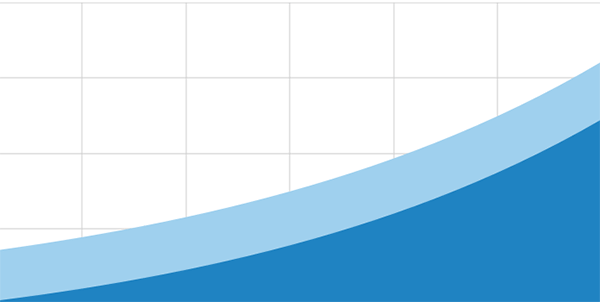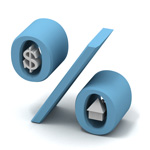Calculate the Future Value of your Initial and Periodic Investments with Compound Interest
 Saving money requires a big effort, it forces you to budget and be disciplined with your spending habits, and many times it can seem hard to stay motivated. It is an important action which will allow you to retire in the future without concern.
Saving money requires a big effort, it forces you to budget and be disciplined with your spending habits, and many times it can seem hard to stay motivated. It is an important action which will allow you to retire in the future without concern.
For most people, investing can be complicated and difficult to understand, but knowing how much interest income investments can generate is crucial and there is always an opportunity cost to consider. The choice between investing or paying debt can be a difficult one, so it is important to find out your investment's future value in order to get a clearer picture.
Initial Investment and Regular Additional Contributions
Whether you have a specific goal or simply want to know how much interest you will gain, this investment calculator will help you find out the future value of your investment. Simply insert the amount you are ready to invest now and/or the additional amount you plan to inject periodically (weekly, bi-weekly, monthly, quarterly, semi-annually or yearly) and then choose the period that best matches your situation (some may be better off with bigger amounts at larger intervals while others might prefer smaller amounts at shorter intervals). This can depend on your type of income; yearly bonus, quarterly commission or weekly salary, for example.
Compound vs. Simple Interest
You can choose the interest rate and the moment its generated income will be cashed (monthly, quarterly, semi-annually or yearly), which is also known as compound interest. Compound interest implicates adding the interest income to your investment, and then reinvesting it, every time, as opposed to withdrawing it.
The other type of interest is simple interest, which capitalizes only the amount invested and doesn’t reinvest the interest income. Simple interest is not widely used and therefore ignored in this calculator.
If your investment gives an annual compound interest, 100% of the interest income will be cashed yearly and then reinvested. If the interest income is capitalized multiple times a year, then a portion of the yearly interest will be capitalized and reinvested. For example, if the program you're investing in says it is monthly compound interest, it means that you will get 1/12 of the yearly interest income every month. Therefore, a shorter compounded period will help you grow your investment faster because the interest calculation is done on the recent capitalized amount which will include the added interest income. Compound interest which is compounded multiple times throughout the year will help you cumulate more interest on interest!
Please change the suggested values with your own amounts in the blue text boxes.




